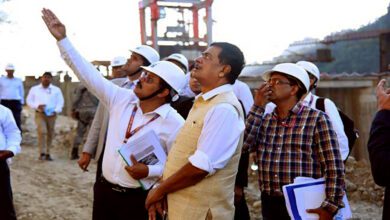In a recent gathering of leaders, innovators, media personnel, and pioneers in the oil and gas industry, Union Minister of Petroleum & Natural Gas and Housing & Urban Affairs, Hardeep Singh Puri, addressed the audience and highlighted India’s commitment to energy transition. Puri stated that India is embarking on an ambitious journey to achieve ‘Net Zero Carbon’ by 2070. Despite facing economic and geopolitical uncertainties, India’s resilient economy, with a projected 7.2% growth in FY 2022-23, is gravitating toward a new era of development.
Puri commended the Federation of Indian Petroleum Industry (FIPI) for recognizing and honouring the clean energy initiatives undertaken by Indian oil and gas companies. The FIPI Oil & Gas Awards, considered the most prestigious awards in the Indian oil and gas industry, acknowledge excellence in various categories, including innovation, women executives, and outstanding performance in exploration, production, refining, marketing, digitalization, and sustainability.
The Petroleum Minister emphasized the importance of ensuring the accessibility and affordability of energy during the transition. While acknowledging India as one of the G20 countries on track to achieve its Paris Agreement commitments, Puri also recognized that hydrocarbons will continue to be a significant part of India’s energy mix for the foreseeable future. To support this, the Government of India has implemented landmark reforms in the upstream, midstream, and downstream sectors of the hydrocarbon industry.
Puri highlighted the recent gas pricing reforms approved by the cabinet, which aim to establish a sustainable, affordable, and secure energy future for Indian citizens. These reforms incentivize investment in India’s exploration and production sector by providing 20% higher prices for gas production from new wells of nomination fields. Importantly, these reforms will not impact private operators or new gas production from field development plans submitted after February 2019.
By implementing gas pricing reforms, India aims to ensure that gas remains competitive compared to alternative fuels, supporting the expansion of the gas-based economy. Puri explained that the Administered Pricing Mechanism (APM) will be determined monthly at 10% of the average Indian Crude Basket Prices, with a ceiling of US $6.5/MMBTU and a floor of US $4/MMBTU. The ceiling will increase by US $0.25/MMBTU each year to account for cost inflation.
Regarding India’s clean and green energy plans, Puri outlined four key areas of focus. First, diversification of supplies; second, increasing the use of alternate energy sources such as biofuels, ethanol, compressed biogas (CBG), and solar power; third, expanding the exploration and production footprint; and fourth, achieving energy targets through electric vehicles (EVs) and hydrogen. India has made significant progress in renewable energy and boasts one of the largest synchronous grids globally.
Puri highlighted India’s enactment of the Green Hydrogen Policy, which aims to produce 5 million tonnes of green hydrogen by 2030 and develop renewable energy capacity. Additionally, he mentioned the ‘Global Alliance on Biofuels’ established with the United States and Brazil during India’s G20 Presidency.
In conclusion, Puri emphasized that a successful energy transition requires collaboration and cooperation among all stakeholders, large and small, to complement each other’s strengths and build strong ecosystems. While challenges lie ahead, Puri expressed confidence in India’s determination and resilience, assuring significant progress toward a sustainable and prosperous energy future.
During the event, Rameshwar Teli, speaking on behalf of the Government of India, reiterated their commitment to achieving the production target of 5 million tonnes of green hydrogen by 2030, as outlined in the Green Hydrogen Policy. Teli mentioned the relentless efforts of oil marketing companies (OMCs) to meet this target.
Arun Kumar Singh, Chairman of FIPI, in his welcome address, emphasized the crucial role FIPI will play in guiding its members through the challenges of the energy transition.
India’s commitment to achieving net carbon zero by 2070 demonstrates its determination to address climate change and pursue a sustainable future. The ambitious energy transition plan, coupled with reforms in the hydrocarbon industry, reflects India’s dedication to energy security, ease of doing business, and a cleaner environment.












